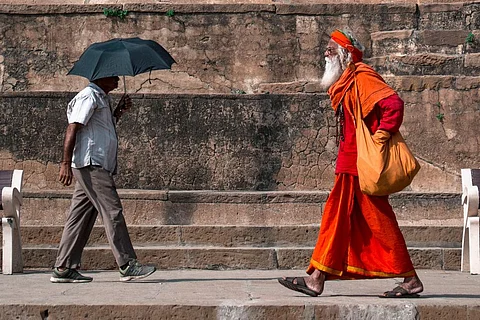
- Home
- NewsGram USA
- India
- न्यूजग्राम
- World
- Politics
- Opinion
- Entertainment
- On Ground
- Culture
- Lifestyle
- Economy
- Sports
- Sp. Coverage
- Misc.
- NewsGram Exclusive
- Jobs / Internships
- Interview

By Devakinanda Ji
Pāpam means any act regarded as such a transgression, especially a willful or deliberate violation of some religious or moral principle.
Ashtottaram 57 OṀ PĀPAVINĀŚABHŨMYAI NAMAH: OṀ (AUM)-PAA-PA-VI-NAA-ŚA-BHOO-MYAI—NA-MA-HA ॐ पापविनाशभूम्यै नमः
(Pāpam: Bad fortune, kārmic bad credit; Vināśa: Destruction, absorption without return)
Belief in a Supernatural Being or Power-generally called God is ingrained in the human psyche. The words of scripture and/or of the men of God, are considered sacrosanct and hence, inviolable. Not following them or going against them has always been regarded as pāpam (a sin) resulting in grave consequences. The Hindu scriptures have designated such sins by various names pāpa, pāpman, vrujina, durita, and so on…The concept of pāpam is as old as Ṛigveda wherein prayers have been offered to deities like Āditya, Mitra and Varuṇa for redemption.
The question as to what causes sin and how it is committed has been discussed in the dharma śhāstrās. Some of the earliest like those of Gautama and Yājnavalkya and the Gīta declares that kāma (lust), krodha (anger) and lobha (greed) are responsible for a person perpetrating evil deeds, thereby accumulating sins.
In the course of time, the list has grown to include many more like himsa (violence), speaking untruth, neglect of prescribed duties, committing deeds declared as evil by the shāstrās. But the dharma śhāstrās offer remedies to the consequences of these sins. They are pāpanivedana (confession), paśchāttāpa (repentance), prāṇāyāma (restraint of breath), tapas (austerity), homa (sacrifice into a duly consecrated fire), japa (repetition of Vedic passages or prayers), dāna (giving gifts), upavāsa (fasting), and tīrṭhayātra (pilgrimage). We are not told repeatedly that we are 'sinners' and God's son was crucified and died for our sins. We are not cursed with eternal damnation.
On the contrary, we are taught the opposite. In Hinduism, people worship gods and goddesses at their homes on a daily basis to get rid off their sins and perform expiatory rituals. Ultimately, it can be safely declared that the following disciplines are the best means of overcoming or attenuating the evil effects of sin on one's life: repentance, resolving not to repeat the sinful deeds, repetition of God's name, earnest prayer and the company of holy persons.
For the pāpa vināśanam, our ancient sages have prescribed various means and because of that, we have temples, puṇya tīrṭhās, and so on. The famous place in South India is Tirumala Sri Venkateswara swami temple and nearby waterfalls known as pāpanāśanam. On a daily basis, thousands and thousands of devotees attend these places.
During auspicious days and festivals, the number of attendees is in the millions. During Kumbhameḷa, over 40 million people take bath in the holy river on a given day. Our land does not condemn sinners and offers expiatory rituals to amend a wrong either of commission or omission and is 'Pāpavināśa Bhūmi'.
